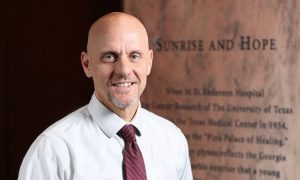 US president Donald Trump has nominated cancer specialist Stephen Hahn to be the new full-time US Food and Drug Administration (FDA) commissioner.
US president Donald Trump has nominated cancer specialist Stephen Hahn to be the new full-time US Food and Drug Administration (FDA) commissioner.
Hahn, 59, a specialist in the treatment of lung cancer, was on the board of the American Society for Radiation Oncology (ASTRO) from 2014 to 2018. He was appointed last year as chief medical executive of the MD Anderson Cancer Center at the University of Texas in Houston, ranked No 1 for cancer care in the US, where he has been a professor of radiation oncology since January 2015. He has previously worked for institutions such as the National Cancer Institute (NCI) and the University of Pennsylvania.
He is also known for being close to the Republican Party and in 2017 contributed $1000 to the New Pioneers PAC, a Republican committee.
Following the official White House announcement of the intention to nominate him, Hahn must now go through a confirmation process in the Senate, where he will need to testify to the Health, Education, Labor and Pensions Committee. The whole process is expected to take a while and could be further delayed by the user fee negotiations for 2022 that will start soon.
New acting commissioner
Former FDA commissioner Scott Gottlieb’s successor Ned Sharpless was only allowed to serve as acting commissioning until 1st November, under the Federal Vacancies Reform Act.
Until Hahn’s appointment is confirmed, the role of acting FDA commissioner will be taken by US Department of Health and Human Services (HHS) assistant secretary Brett Giroir, who was linked with the role before it was handed to Sharpless in March.
“Admiral Giroir has been an indispensable leader for HHS on a number of public health priorities. As assistant secretary for health, whose authorities include overseeing the US Public Health Service, he will be able to assume the delegable duties of the commissioner at this time and ensure the FDA’s work continues to move forward,” health and human services secretary Alex Azar said.
According to the Washington Post, Sharpless will return to his previous role as director of the National Cancer Institute.
“With Dr Sharpless at the helm, the FDA has executed on its core responsibilities while also making progress on key priorities, such as lowering the price of prescription drugs and tackling the growing epidemic of youth use of tobacco products,” Azar said.
What This Means: Just a year before the 2020 presidential elections, president Trump has taken an important step towards establishing new leadership for the FDA.
Stephen Hahn has never before worked in a government role, focusing mainly on research for academic institutions far from the decision-making power of Washington.
It is expected that both acting commissioner Giroir and commissioner-designate Hahn will need to deal with multiple policies regarding tobacco control and e-cigarettes, including the development of the upcoming guidance on flavoured e-cigarettes, expected to be published this week, and continuing ramifications of the lung illness outbreak.
– David Palacios ECigIntelligence staff
Photo: MD Anderson Cancer Center






